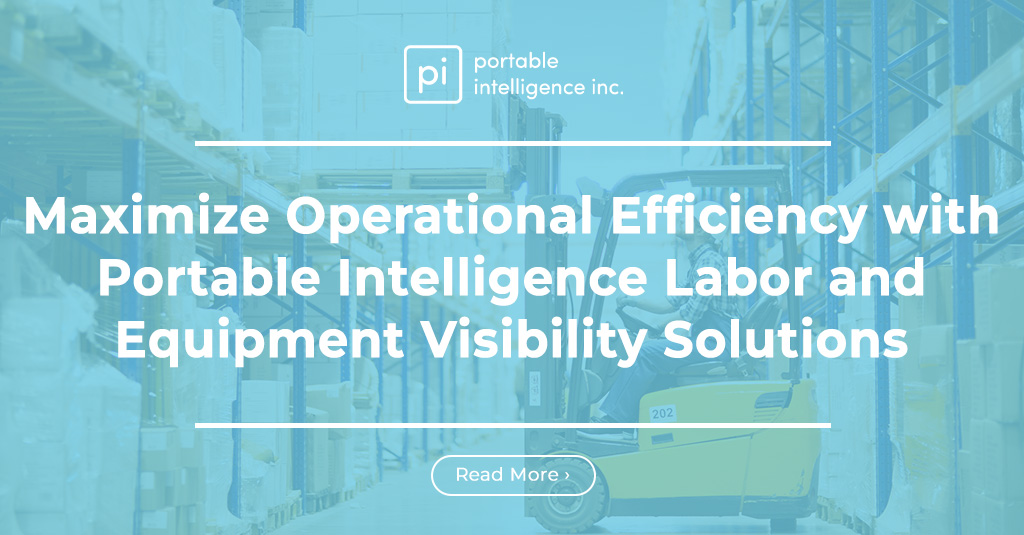The introduction of smart warehouses into the supply chain industry has been a game changer, offering numerous benefits that have revolutionized the way companies manage their inventory and operations. A smart warehouse is defined as a technologically advanced warehouse that utilizes automation, data analysis, and other advanced technologies to increase efficiency, accuracy, and overall performance. The supply chain industry plays a crucial role in the success of businesses, as it encompasses all the activities involved in getting a product from the manufacturer to the end customer. The purpose of this post is to shed light on how smart warehouses are transforming the supply chain industry, from increased efficiency to improved customer experiences.
Smart warehouses have become a hot topic in the industry, as more and more companies are recognizing the benefits they offer. By utilizing technology such as automated storage and retrieval systems, wireless sensor networks, and real-time data analysis, smart warehouses are providing a new level of efficiency, accuracy, and control. Whether you are a small business looking to streamline your operations or a multinational corporation seeking to improve your supply chain management, smart warehouses have something to offer. In this post, we will delve into the features, benefits, and impact of smart warehouses on the supply chain industry, providing a comprehensive overview of this exciting and rapidly growing field.
Understanding Smart Warehouses
Smart warehouses are equipped with a range of features that set them apart from traditional warehouses. At the core of these features is automation and data analysis, which provide real-time information on inventory levels, order fulfillment, and other key metrics. This information allows companies to make informed decisions that improve their operations and maximize efficiency. Automated storage and retrieval systems (ASRS) are another key feature of smart warehouses, allowing for fast and accurate storage and retrieval of items. Wireless sensor networks also play a critical role, providing real-time data on temperature, humidity, and other environmental factors that can impact the safety and quality of stored items.
The benefits of using smart warehouses are numerous and include improved inventory management, enhanced customer experiences, and streamlined operations. With real-time data and advanced technologies like ASRS, smart warehouses allow companies to better manage their inventory and minimize the risk of stockouts or overstocking. This results in reduced costs, improved customer satisfaction, and increased revenue. Additionally, the use of automation and real-time data analysis helps to reduce errors, increase efficiency, and minimize the need for manual labor. This results in significant cost savings, improved accuracy, and increased operational efficiency.
Smart warehouses are also providing a more personalized and efficient customer experience, as they allow companies to track and manage orders in real-time. This allows companies to respond quickly to customer requests, reducing the time it takes to fulfill orders and improving overall customer satisfaction. By providing a more efficient and accurate supply chain, smart warehouses are helping companies to differentiate themselves from their competitors and stay ahead in an increasingly competitive marketplace.
Smart warehouses are a critical component of modern supply chain management, offering numerous benefits that are transforming the way companies manage their inventory and operations. From increased efficiency to improved customer experiences, smart warehouses are providing a new level of control and accuracy that is driving success in the supply chain industry.
The Impact of Smart Warehouses on the Supply Chain Industry
The impact of smart warehouses on the supply chain industry has been nothing short of remarkable. One of the most significant benefits of using smart warehouses is increased efficiency. With the use of automation and real-time data analysis, companies are able to manage their operations more effectively, reducing the risk of errors and increasing overall efficiency. Automated storage and retrieval systems (ASRS) allow for fast and accurate storage and retrieval of items, reducing the time it takes to fulfill orders and improving the overall speed of operations.
Improved inventory management is another key impact of smart warehouses on the supply chain industry. Real-time data and advanced technologies like ASRS allow companies to better manage their inventory, reducing the risk of stockouts or overstocking and improving accuracy. This results in reduced costs, improved customer satisfaction, and increased revenue. Additionally, smart warehouses provide real-time data on temperature, humidity, and other environmental factors, ensuring that stored items are kept in optimal conditions and reducing the risk of damage or loss.
Smart warehouses are also enhancing the customer experience, providing a more personalized and efficient service. With real-time data and advanced technologies, companies are able to respond quickly to customer requests, reducing the time it takes to fulfill orders and improving overall customer satisfaction. This provides a competitive advantage, helping companies to differentiate themselves from their competitors and win customer loyalty.
Finally, smart warehouses are streamlining operations, reducing the need for manual labor and minimizing the risk of errors. With automation and real-time data analysis, companies are able to manage their operations more effectively, reducing costs, improving accuracy, and increasing efficiency. Whether you are a small business looking to streamline your operations or a multinational corporation seeking to improve your supply chain management, smart warehouses offer a new level of control and accuracy that is driving success in the supply chain industry.
The impact of smart warehouses on the supply chain industry is substantial and far-reaching. From increased efficiency to improved customer experiences, smart warehouses are transforming the way companies manage their inventory and operations, providing a new level of control and accuracy that is driving success in the industry.
The Future of Smart Warehouses
As the supply chain industry continues to evolve, the implementation of smart warehouse technology will become increasingly important. The benefits of smart warehouses, including increased efficiency, improved inventory management, and enhanced customer experiences, are already being realized by companies across the globe. However, there are a number of additional benefits that are expected to emerge as smart warehouse technology continues to advance.
One of the most exciting benefits of smart warehouses is the ability to use predictive analytics to improve operations. Predictive analytics is a powerful tool that uses machine learning algorithms and historical data to make predictions about future events. In the context of a smart warehouse, this could mean predicting demand for certain products, identifying patterns in order fulfillment, or predicting the need for maintenance on certain equipment. By using predictive analytics, companies can make more informed decisions that improve their operations and increase efficiency.
Another benefit of smart warehouses is the ability to integrate with other technologies, such as the Internet of Things (IoT) and artificial intelligence (AI). The integration of these technologies will allow companies to gather and analyze even more data, providing greater insight into their operations and allowing them to make more informed decisions. This will also lead to the development of new and innovative solutions that will further improve the efficiency and accuracy of supply chain management.
Smart warehouses are also expected to play a key role in the development of new business models, such as subscription-based or on-demand models. These models will provide customers with greater flexibility, allowing them to access products and services in new and innovative ways. Additionally, smart warehouses will play a critical role in the development of circular supply chains, where products are reused and recycled instead of being discarded. This will help to reduce waste, improve sustainability, and reduce the impact of the supply chain on the environment.
The benefits of smart warehouses are far-reaching and will continue to evolve as technology advances. From predictive analytics to the integration of IoT and AI, smart warehouses are poised to play a critical role in the development of new business models and the advancement of circular supply chains. Whether you are a small business or a multinational corporation, the implementation of smart warehouse technology is an investment that will drive success and competitiveness in the supply chain industry.
As the supply chain industry continues to evolve, it is important to understand the challenges that come with implementing smart warehouse technology. While the benefits of smart warehouses are clear, there are a number of challenges that must be overcome in order to fully realize the potential of these technologies.
One of the biggest challenges facing companies when implementing smart warehouses is the cost of investment. The technology used in smart warehouses can be expensive, and the process of integrating these technologies into existing operations can be complex and time-consuming. Additionally, the cost of hiring and training personnel to operate and maintain these technologies can be significant.
Another challenge of smart warehouses is the need for accurate and reliable data. In order for smart warehouse technology to be effective, it must be fed with accurate and up-to-date data. This requires a significant investment in data management systems, as well as the development of processes and procedures to ensure the accuracy and reliability of data.
The integration of smart warehouse technology with existing systems can also be a challenge. Many companies have legacy systems in place that are not designed to work with new technologies, requiring significant time and resources to integrate these systems. This can result in downtime, decreased efficiency, and increased costs.
Finally, companies must also consider the impact of smart warehouse technology on their workforce. The implementation of automation and advanced technologies may result in the displacement of some workers, which can lead to resistance and pushback from employees. Companies must be proactive in addressing these concerns and developing plans to retrain and reskill affected workers.
In order to succeed in the competitive and rapidly evolving supply chain industry, companies must embrace smart warehouse technology and the benefits it offers. However, simply investing in technology is not enough. Companies must also develop a clear and comprehensive strategy for implementation and ensure that their operations and workforce are prepared to effectively utilize these technologies.
One key aspect of implementing smart warehouse technology is having a clear understanding of your business needs and goals. Companies must take the time to assess their current operations, identify areas for improvement, and determine the specific technologies and solutions that will best meet their needs. This requires collaboration between different departments, including operations, IT, and finance, to ensure that all perspectives are considered and that the implementation of technology aligns with the overall goals and objectives of the company.
Another important aspect of implementation is ensuring that the workforce is prepared and trained to use the new technologies. This includes not only the employees who will operate the technology, but also those who will work alongside it. Companies must invest in training and development programs to ensure that their employees have the skills and knowledge necessary to effectively utilize the technology and drive success.
It is also important to have a plan in place for continuous improvement and refinement of the technology. As the industry continues to evolve, smart warehouse technology will continue to advance and new solutions will emerge. Companies must be proactive in seeking out new and innovative technologies, testing and evaluating their effectiveness, and continuously improving their operations to remain competitive and drive success.
The implementation of smart warehouse technology is a complex and multifaceted process that requires a clear and comprehensive strategy. From understanding business needs and goals to preparing the workforce and continuously improving operations, companies must be proactive and strategic in their approach to technology in order to drive success in the supply chain industry.




